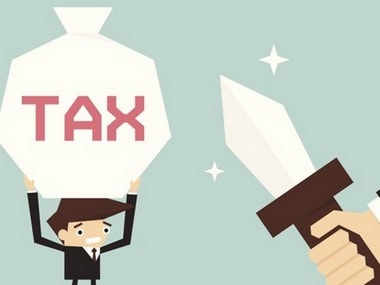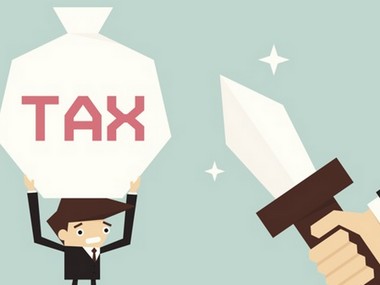Union Budget 2020-21 is the first full year Budget to be presented post-election by the Finance Minister on 1 February 2020. Like always, the expectations of the common man on the personal tax front are multiple. The rationalisation in personal income taxes is one of the key expectations of the individual taxpayer. With the recent reduction in the corporate tax rates, the aspirations of the individual taxpayer are high as they need an additional net income at their disposal. This could also result in enhanced consumption and hence spur overall demand for goods and services. Some of the key expectations on the personal tax front the government may consider are as under: Income up to Rs 2.5 lakh p.a. is currently exempt from tax. This limit has remained constant since FY 2014-15. In February 2019, the Interim Budget 2019 provided some relief to an estimated 3 crore middle-class taxpayers by enhancing the rebate from tax to Rs 12,500 which effectively translated into the payment of nil tax by individuals having income below Rs 5 lakh. The existing slab of income and tax rates have remained constant for the past few years. Hence, it is hoped that the basic exemption limit is enhanced to Rs 5 lakhs itself. This would also need to be assessed basis the potential number of taxpayers (estimated at 3.50 crores basis tax returns filed for FY 2017-18 ) who may fall out of the mandatory tax return filing requirement. Currently, the maximum tax rate of 30 percent is triggered at an income exceeding Rs 10 lakh per annum. Such a limit if enhanced to Rs 20 lakh p.a. is expected to benefit approximately 10 percent of total individual taxpayers (estimated basis number of individuals who had reported income of Rs 10 lakh or more in their tax returns filed for FY 2017-18). Subsequently, the other slab rates can be adjusted basis the revised limits. At the same time, the government would also need to evaluate the impact of such changes on the fiscal deficit Individual taxpayers in the higher income bracket are subject to an enhanced surcharge on income tax (surcharge at 25 and 37 percent for those having taxable annual income between Rs 2-5 crore and above Rs 5 crore respectively). This category of taxpayers have a wish list that the enhanced surcharge may be re-evaluated and moderated to a comparatively lower level. There is a small base of super-rich individual taxpayers (0.18 percent taxpayers reported total income more than Rs 1 crore and above in FY 2017-18) . Further, moderation of the enhanced surcharge would perhaps also help India remain a competitive tax jurisdiction vis-a-vis other lower tax jurisdictions for the hiring of specialist talent and to ensure a continued flow of skilled resources to support the development of the nation and strategic programmes like ‘Make in India’ [caption id=“attachment_5890331” align=“alignleft” width=“380”]  Representational image. Reuters[/caption] Deduction under Section 80C of the Income-tax Act, 1961 (‘the Act’) is Rs 1.5 lakh per annum for various common tax-saving investments/expenditure. This limit has remained static for past five years. Keeping in mind the overall rise in the inflation rate, the government may hence consider increasing this to Rs 3 lakh per annum to provide impetus to consumer spending to spike up the demand and also encourage individuals to meet their long-term savings goals Interest payable on housing loan. There have been various tax and regulatory changes in the real estate sector over the past few years. As the industry settles down with the implementation of the same, enhancing the limit of interest deduction for interest payable on housing loan on self-occupied properties to Rs 4 lakh per annum may provide a helping hand to both the housing industry and home buyers. The government had introduced an additional deduction of Rs 1.5 lakhs of interest on housing loan for first time home buyers where stamp duty value of the property was below Rs 45 lakhs and the loan was sanctioned in FY 2019-20. In order to further provide a boost to the affordable housing initiative of the Central government, this deduction may be extended for first time home buyers in FY 2020-21 as well. The various exemptions currently provided to salaried individuals may have outlived their utility as they have been kept constant for more than a decade now. Therefore, the hope is also that these limits could be enhanced substantially (e.g children education allowance limit from Rs 100 to Rs 500 per month per child, children hostel allowance limit from Rs 300 to Rs 1,500 per month per child and meal vouchers from Rs 50 to Rs 100 per meal). Expectations of the common man on the personal taxes from Budget 2020 are mainly to provide their households with extra disposable income. At the same time, the government must weigh various factors like the impact of the same on the economic activity and fiscal discipline before making a final decision. (The writer is Partner and Head, Global Mobility Services-Tax, KPMG in India) Follow full coverage of Union Budget 2020-21 here
Currently, the maximum tax rate of 30 percent is triggered at an income exceeding Rs 10 lakh per annum
Advertisement
End of Article


)
)
)
)
)
)
)
)
)



